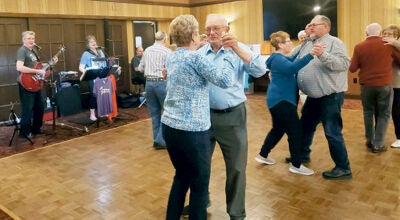AP-NORC Poll: Many feeling vulnerable despite economic gains
Published 8:26 am Wednesday, July 10, 2019
WASHINGTON — Americans are generally satisfied with their personal finances, but many lack confidence in their ability to afford retirement, an emergency expense or even their daily living costs.
Roughly two-thirds, 67%, describe their financial situation as generally good, up slightly from 62% who said so at the start of the year, according to a survey by The Associated Press-NORC Center for Public Affairs Research.
Their brighter economic outlook reflects in part a decade-long U.S. economic expansion that is now the longest on record. The expansion has slashed unemployment, revived the housing market and boosted overall household wealth. But some groups, especially young adults, racial minorities and the poor, say they remain financially insecure.
Their anxiety is among the consequences of the economic expansion, which has benefited the most affluent far more than it has others. The richest Americans now hold a greater share of the nation’s wealth than they did before the Great Recession began in 2007.
Housing and college costs have imposed a much heavier strain on today’s young adults than they did on older generations. And four decades of sluggish pay growth have depressed starting salaries for people who are beginning their careers.
Nearly four in 10 Americans say they lack confidence in their ability to pay an emergency expense of $1,000. At the same time, only about 1 in 10 say it’s very likely they wouldn’t pay the bill at all, even if it meant taking a loan, relying on a credit card or borrowing money from relatives.
Just two in 10 are very confident that they’ll have enough savings for retirement. Nearly half have little to no confidence.
A quarter of Americans say their expenses are rising faster than their incomes. Just 11% say their salaries have outpaced their costs. (The rest say their incomes have largely kept pace with expenses.)
Many older Americans have managed to build financial security through home ownership and traditional pensions, which most employers have now phased out. About three-quarters of those ages 60 and over report feeling good about their financial situations.
By contrast, four in 10 Americans under 30 describe their financial situation as poor. Half say they doubt their ability to handle an unplanned bill — twice the proportion of people ages 60 and older.





